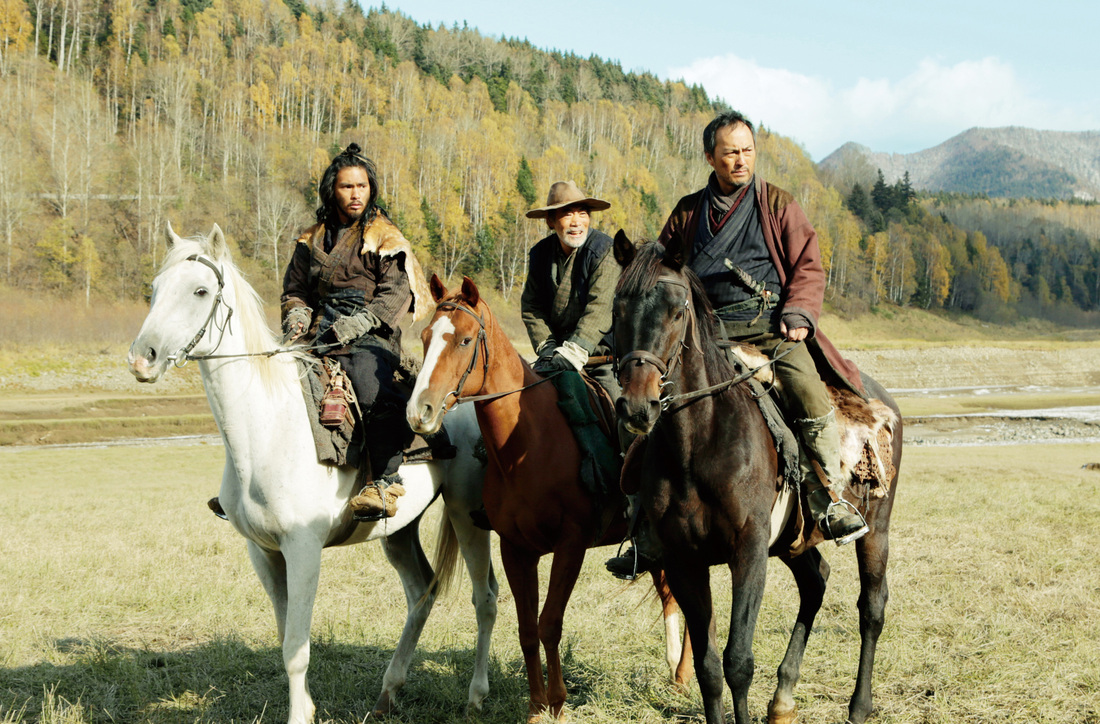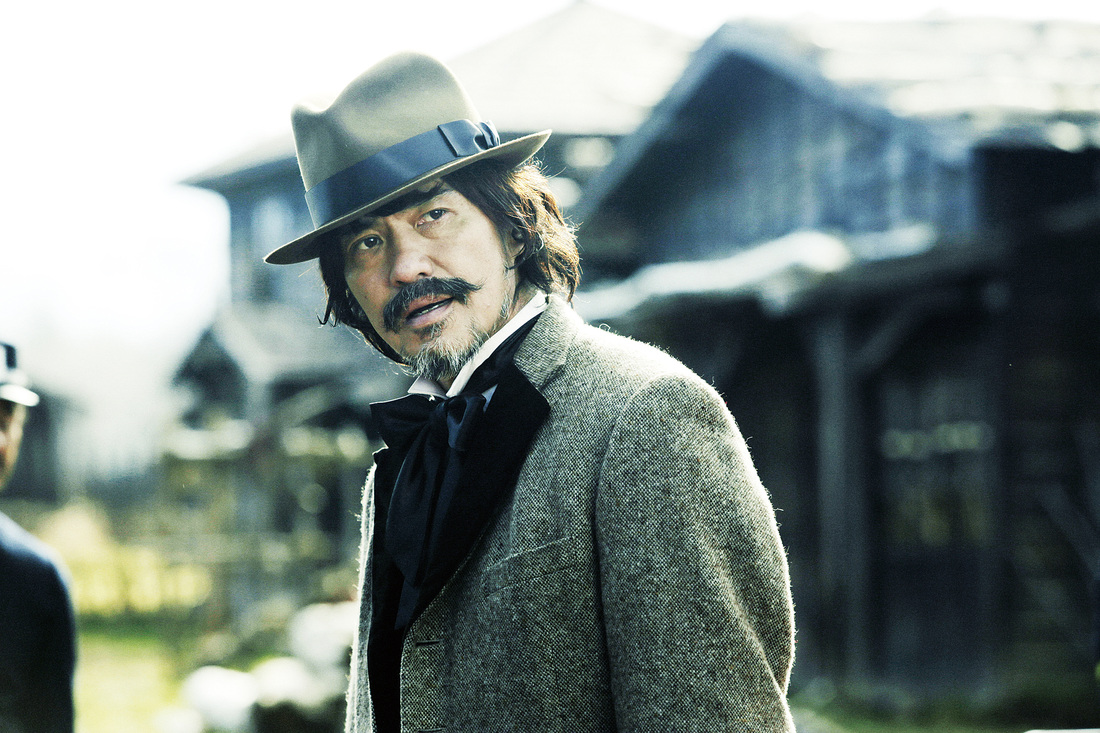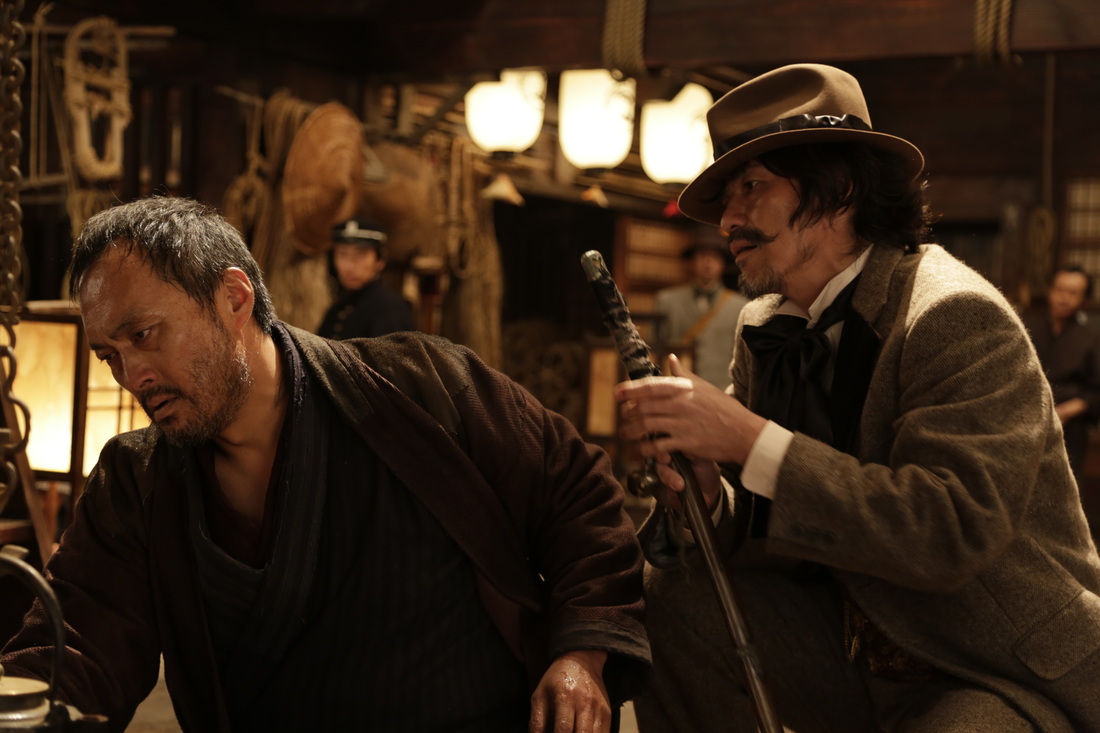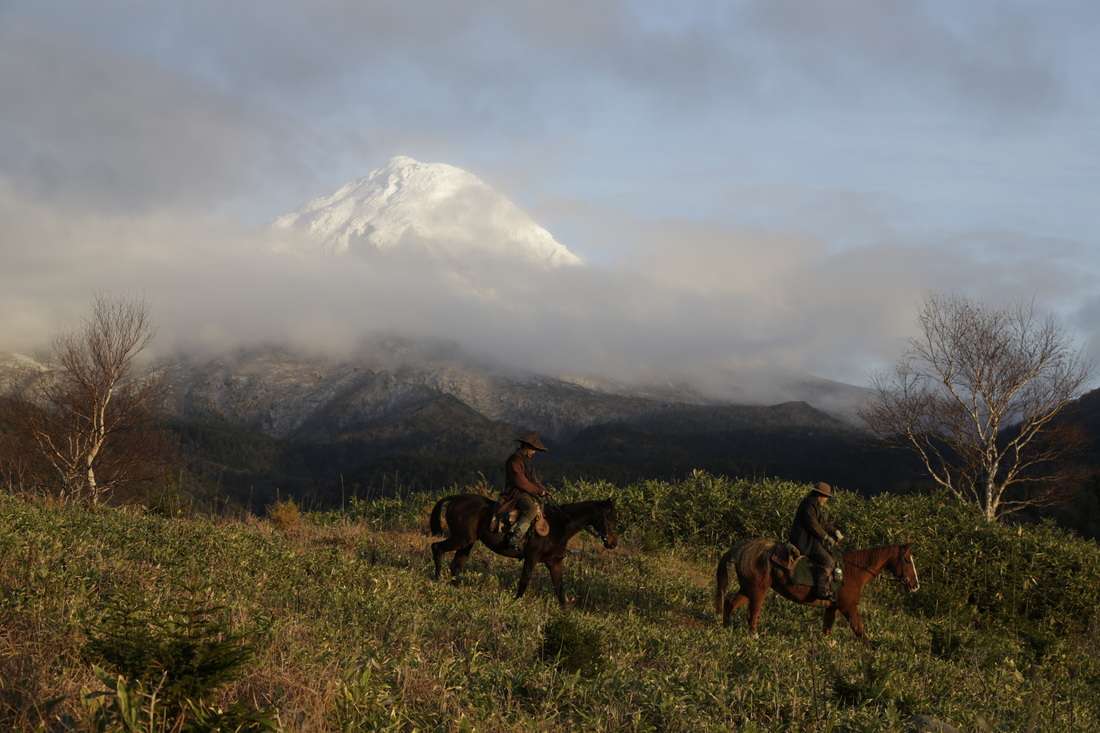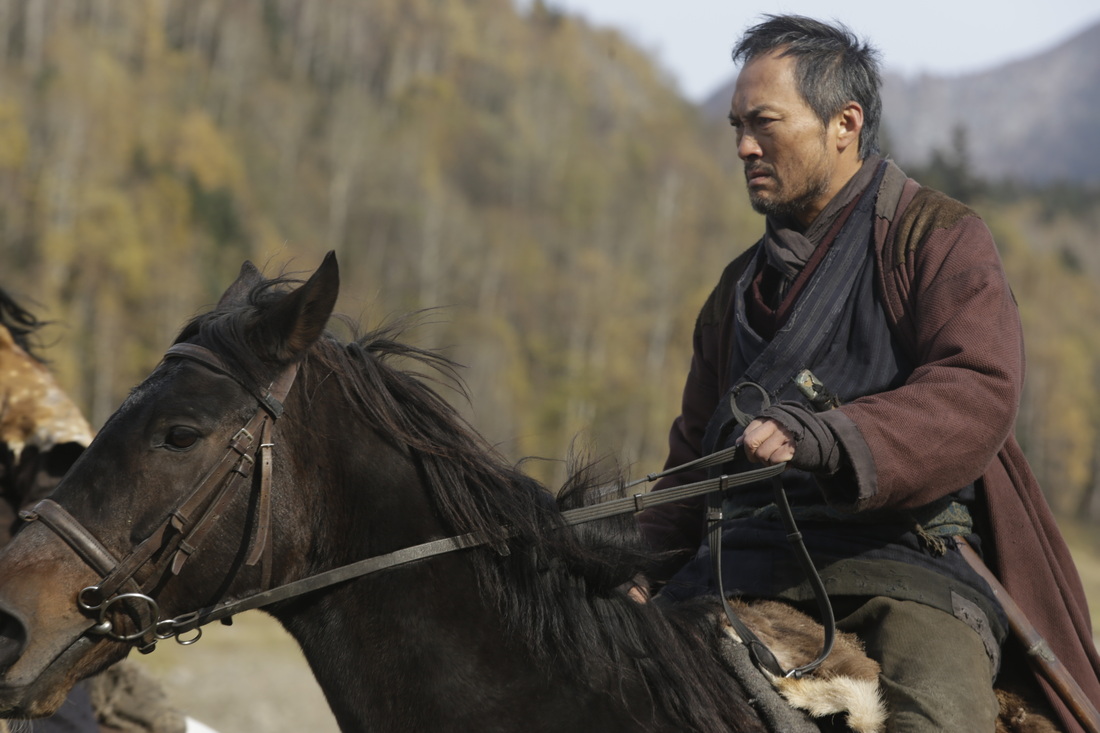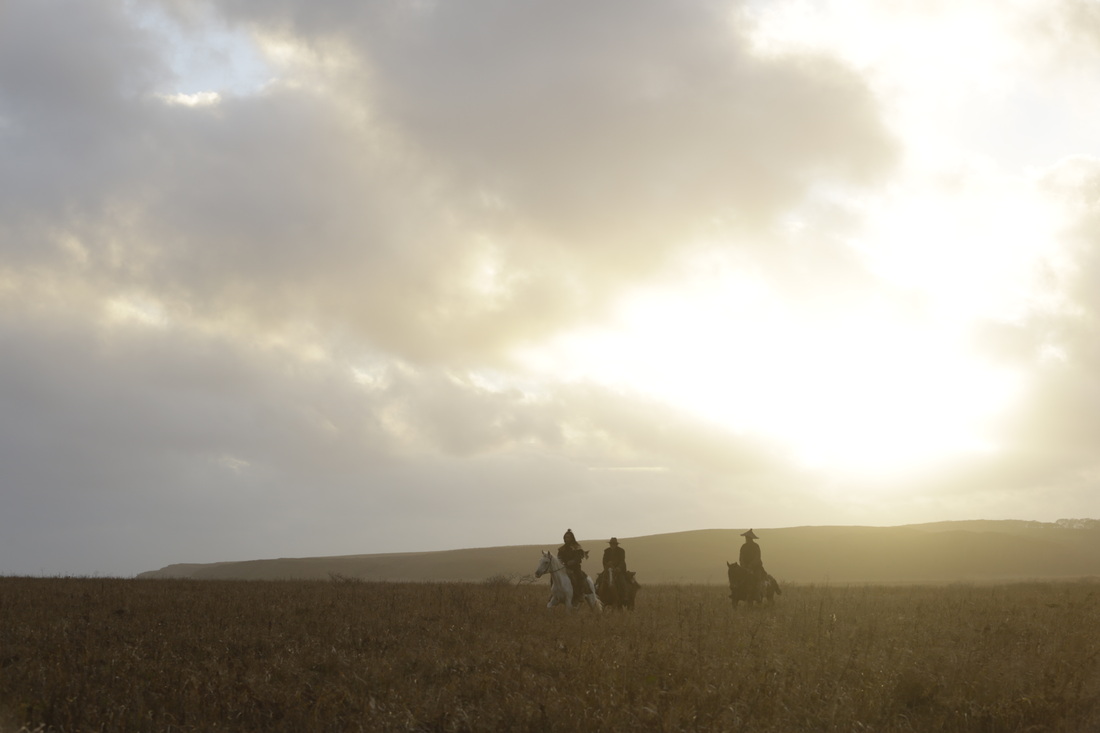|
How entertaining? ★★★★☆
Thought provoking? ★★☆☆☆ 11 December 2013
This article is a review of UNFORGIVEN.
Seen at the Toronto International Film Festival 2013. (For more information, click here.)
|
“Kill and kill and kill, and then be killed in return. That’s all I thought my life was,” Jubei Kamata (Ken Watanabe)
It is rare for the reverse situation, where the international community remake Hollywood product. Writer-director Sang-il Lee has transposed Clint Eastwood’s masterpiece from the Wild West of America to the dying days of the samurai in 19th century Japan. The filmmakers understand that the distinctive characters and lean plot require no altering. They overlay on the formidable skeleton a similar genre deconstruction. Like the 1992 original, where gunslingers are not romantic heroes fighting for justice, this update takes apart the bushido myth. The chivalry of the samurai (a.k.a. bushi/buke) is reduced to a grubby whimper. Director Lee has made an impressive leap forward from his previous work, overblown soap opera VILLAIN.
It is rare for the reverse situation, where the international community remake Hollywood product. Writer-director Sang-il Lee has transposed Clint Eastwood’s masterpiece from the Wild West of America to the dying days of the samurai in 19th century Japan. The filmmakers understand that the distinctive characters and lean plot require no altering. They overlay on the formidable skeleton a similar genre deconstruction. Like the 1992 original, where gunslingers are not romantic heroes fighting for justice, this update takes apart the bushido myth. The chivalry of the samurai (a.k.a. bushi/buke) is reduced to a grubby whimper. Director Lee has made an impressive leap forward from his previous work, overblown soap opera VILLAIN.
|
|
|
Eastwood’s UNFORGIVEN chose not to show the formidable lead’s younger heyday; reputation was created using three methods:
1. The initial title card, “…it was heartbreaking to her mother that she would enter into marriage with William Munny, a known thief and murderer, a man of notoriously vicious and intemperate disposition.”
2. The reactions of those that fearfully recognised his name.
3. One of the great Western monologues that included the line, “I've killed just about everything that walks or crawled at one time or another.”
UNFORGIVEN (2013) does away with the first and third. (How do you equal, let alone beat, that kind of writing?) The audience instead gets to see Ken Watanabe’s Jubei Kamata in action. It is 1869, year two of the Meiji era. The new government are pursuing the remnants of the Shogun armies. The former samurai on the northern island of Hokkaido are being hunted in the wintry snow. Starving and bedraggled, Jubei holds his own. He was a member of the Shogun’s elite force. The cowed awe is also still present, as a friend later observes, “The only luck I ever had was not making an enemy of you.”
Jumping to year 13, 1880, in Washiro, Hokkaido, and a prostitute, Natsume (Shiori Kutsuna), is repeatedly slashed across the face for laughing at a settler’s manhood. So begins the dissection of the fragility of masculinity. Not stopping at mere mortals, the film brings to their knees the feudal military caste who had once kept order in Nippon. Mistreatment of women is glaring, as madam of the brothel Okaji (Eiko Koike) demands justice from the police, but gets little. “I’m sick of living as if I were dead,” she exclaims. The prostitutes cobble together a bounty for anyone who kills the two settlers (one of whom was unfortunate enough to be the perpetrator’s colleague).
Jubei is now a widower of three years, father of two, and eking out a poor existence as a farmer. Struggling in filth is how old comrade Kingo Baba (Akira Emoto) finds him; coaxing him into breaking his oath to his dead wife, of no more homicide. The reward for the settlers’ murder is too tempting is the suggested reasoning, but under the glassy surface is a man who likes to extinguish life. UNFORGIVEN (2013) is more ponderous than its predecessor, the silences and reactive looks speaking volumes. The most showy character is the merciless law enforcer Ichizo Oishi (Koichi Sato), the nemesis of all those who are drawn to the town of Washiro to earn the bounty. His particular hatred of ex-samurai drives the menacing tone, “We have rules because it is so wild”.
All those familiar with UNFORGIVEN (1992) will know how the update unfurls. Beautiful vistas to sate the eye contrast the cycle of violence ramping up. Themes are augmented by looking at race and resettlement (Western ideas coincidentally), and the nature of duty. Jubei was no wandering psychopath, he killed – women, children, Christians – for the leader of his nation. There is a different exploration of the amoral motivation of people: State sponsored, over individual anarchy. The wrestling of guilt and responsibility is palpable on his almost permanently pained expression.
The skill of a remake is to know what to keep, to jettison, to update; UNFORGIVEN (2013) is arguably an unnecessary adjunct to Eastwood’s masterwork, but as an addition to the samurai genre it is most welcome.
We have selected movies below that we think will be of interest to you based on this review.
Using these Amazon affiliated links help us keep Filmaluation free for all film and arts lovers.
Amazon UK
|
|
|
|
|
Amazon USA
|
|
|
|
|


